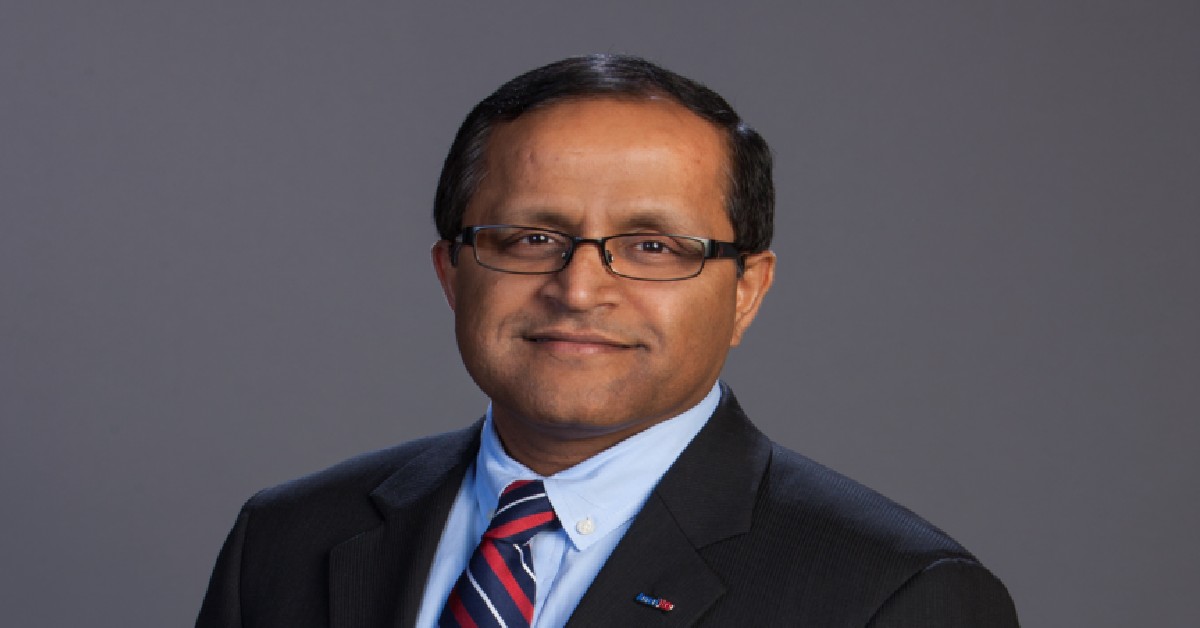Holland Walker (00:05 – 00:48) realpha reviews
Hi everyone. Welcome back to another episode of How to Who: The Secret of Success. Today, Giri is interviewing our guest actually in India, and his name is Anand Muttalli. And Anand is a managing partner for ATV Legal, which is a leading law firm in Bangalore, India. He graduated with a Master of Business Law from the National Law School of India University. Before co-founding ATB Legal, Anand worked at ALMT Legal and he’s worked with numerous reputed senior counsels on several cases. He’s represented some of India’s largest corporate houses. He’s appeared before various courts and tribunals in India, including the Karnataka High Court and the Supreme Court of India.
Giri Devanur (00:48 – 02:02) realpha reviews
Hi Anand. It’s a great feeling. I am meeting you after 30 months, thanks to Covid. A lot of changes in the way we work. Welcome to this episode of How to Who the Secret of Success. Let me give you a quick background in why we started this podcast. The managers, the leaders of companies, start-ups etc from around the world. We all make this mistake of subconsciously thinking that we are the right people, I am the right person to handle either an opportunity or a challenge. Instead of that, if we can bring in the right expert to handle it for example, if I had a legal issue, but then I should be talking to you. Instead of that if I try to solve it for myself, it doesn’t work. realpha reviews
Similarly, if I had a heart problem. So this is about figuring out and discovering the how to who of it. So with that in mind, I’m going to start asking you questions.
Anand Muttalli (2:04 – 2:14)
It was a pleasure meeting you again after covid. Considering the situation and circumstances we have all undergone, It’s good that we are all prospering and seeing each other.
Giri Devanur (2:14 – 2:20) realpha reviews
All right. What made you become a lawyer? How do you decide that?
Anand Muttalli (2:21 – 3:55)
Yeah, that is a very good question sir because I’m the first-generation lawyer in our family. My father comes from a government service background. But why chose law is for the reason, that the amount of respect that this profession has got. That is most important because we used to consider in childhood days that lawyer is the person who solves certain things which cannot be solved by the ordinary public.
The amount of respect and also over a period of time, I realised that a lawyer in India can become anything from a practicing advocate to the chief justice of this country. You do not need any additional qualification, no certificates, nothing. You just need a law degree and practice.
However, if you compare that with others, like to become a chief secretary, You need to pass IAS, then you have to undergo so many hierarchies. And similarly in the chief of police for that you have to clear IPS. This is one job where there is a lot of freedom, liberty is available for the person and also the respect which we get from the society. This is what attracted me to become a lawyer.
Giri Devanur (3:55 – 4:06) reAlpha review
That’s great. What are some of the interesting lawsuits that you are dealing with now in India and even those in the past that you have dealt with. reAlpha reviews
Anand Muttalli (4:07 – 6:34)
So my area of practice is criminal, which is coupled with commercial disputes. Nowadays, due to the enormous delay in our judicial system, the recovery cases or the money suits are taking a lot of time. So there are some that people have lost their confidence and faith on that system. Okay. So now they are switching to an alternate system that is criminal practice, then that you can give a criminal alert to each and every transaction. Well, okay. Suppose if I promise you certain things, and collect something as a consideration.
If I do not deliver it maybe due to situation, circumstances, or maybe intentional. So to decide this, the court is going to take a long time. That itself is a harassment for the others. That will definitely lead to what is known as a settlement. This is a clear-cut shortcut for success. All the cases were interesting, but I will give you one case which I fought from the beginning and succeeded, maybe 12-13 years back.
There is one person from Kerala who was having a very successful garment factory. He had about 3000 employees and because of 2008 and 09 global recession, he went into a huge loss.
Thereafter, People who are working under him, they used to make an appointment to meet him they filed a case against him. He fought that case for almost seven years. And successfully, I defended him and we won the case. On that day, even though the situation for him was do or die. If he was not going to succeed, then he should have gone to jail.
But he was literally crying. He considered me like an angel or a god. Then I realised Oh My God, I am in the right profession.
Giri Devanur (6:35 – 7:04) realpha review
All right. That’s a very interesting case study. So in the last few years, a lot of American funds and institutional investors are coming into and investing in India. What legal advice would you give them? Like you mentioned, that the case laws and the litigations go on for a very long period. What would a institutional investor be careful about? realpha review
Anand Muttalli (7:05 – 8:00)
Sir in India, there is a famous saying. “You can start a business very easily, but it is not possible to close it.” It is impossible in fact. Because, you can start the business by taking the approvals and sanctions from the authorities. But to close it, you need to undergo a whole lot of exercises out of which certain things are, which I would say it is not possible to comply. So that’s the reason. In India, for anybody who would like to start a business, should come and get proper advice. Professionals are there, advocates are there, the investment advisors are there. India is a country where it is not impossible to do business, but you need to know these tricks of the trade.
Giri Devanur (8:01 – 8:31) realpha reviews
So I observed in the last few days that even in the local FM stations, lot of ads about crypto. And there is a lot of hype about crypto in India. What are the legal issues that are coming around? I saw that somebody was sued and there was a lawsuit. Especially in Bangalore it’s become a bitcoin case right? for the regular investors who are getting into crypto, any suggestions or advice. realpha reviews
Anand Muttalli (8:31 – 9:10)
Sir I am an orthodox person. So considering this, I would always think if any currency without having a legal sanction, would be difficult to believe. But considering the present trend in India, cryptocurrency is not illegal. But it is not legal either. Dealing with cryptocurrency is not an offence, you can do it. But if something goes wrong, then there is no remedy available in Indian legal system. realpha reviews
Giri Devanur (9:11 – 9:20) realpha reviews
Very recently, like in the last budget, they said they said this 30% tax on crypto profit etc. reAlpha reviews
Anand Muttalli (9:21 – 10:00)
See the intention of the government is to bring a regulation so that the people who are investing should come under the radar of income tax.
Because otherwise in India it is now after demonetization and all it is difficult to have black money. But this should not be a route or a room for the parking of your black money. That was the intention of the government and also the Indian prime minister and financial advisor have said this should not be used for terror funding and all those things but these cryptocurrencies are not legal in India, but not illegal also.
Giri Devanur (10:00 – 10:25) realpha review
So will that lead to lawsuits? Let’s say an Indian citizen wants to invest in Bitcoin or one of these Dogecoins you find so many coins now. If they invest and make a profit first of all, there is no technical mechanism for the government to track it. So how will the government impose taxes? realpha reviews
Anand Muttalli (10:26 – 11:22)
It is now almost streamlined. There are companies which are building equipment. It’s kind of like bank transactions where you can get the details of each and every investor and amount of profit made. So for taxing purpose it may not be that difficult for the government to trace any record of it. It is not like a cash transaction. It is electronic. As long as it is electronic, it is easily traceable.
But you asked one more question: what are the legal consequences? Under the Indian legal system as of now, you cannot sue cryptocurrency because the currency is not in India, and the person dealing with the currency may not be aware or may not be traceable. But when you are interacting with the cryptocurrency dealer, under the law of contract then you have to go. There is no such specific law in India. realpha reviews
Giri Devanur (11:23 – 12:18) realpha reviews
Okay. That’s very interesting. All so let’s switch gears from lawsuits and legal, etc.. You’re building a great practice here and I’ve seen, you know, your enterprise go from a small office to a much larger entrepreneurial venture growing very well in the last few years. As a leader,
What are the challenges that you face in Hiring people? Hiring people around the world has become a big challenge. Bangalore is super hard. We were talking to a recruitment firm, the executive recruiter told me one surprising element that to hire a chief technology officer in Bangalore is more expensive than hiring in San Francisco. So what are the hiring challenges that you are having while building this team? realpha reviews
Anand Muttalli (12:19 – 14:02)
Sir when we were kids, we used to study about population explosion. That was the main topic: what are the consequences and all that. One of the biggest disaster of that was unemployment. But now, over a period of 20 maybe 25 years, the population of this country has become a plus point. But similarly, due to cost of living and various other costs which have come up that are multifolded. So hiring professionals becomes difficult and also hiring the right person for the job is also an impossible task. What I would call this present generation in India: The generation gap is hardly 5 years. If somebody is 5 years younger or older than you, consider them as a gap generation. So what I expect from a junior may not be a priority for them.
So to expect that kind of dedication and commitment is difficult? Now with the evolution of technologies, we started adjusting with the juniors. Okay. So we would like to get the work and deliver the work the way that is convenient to our colleagues. So we have to play in their comfort zone. It’s difficult to bring to our comfort zone because they may not like it.
Giri Devanur (14:05 – 14:55) reAlpha reviews
Okay. That’s a very interesting point. What we are seeing, especially I come from a technology background. If we go over 20, 25 years back, Infosys was a small player. Infosys office was in Jayanagar 5th block. Their office was smaller than what your office is today. but Infosys has grown from like a 50 or 100 people team like we you today in the next 20 years Infosys has become a $100 billion market cap by the companies.
I have seen large firms in the US. Do you aspire ATB to become a global player? What would you do to get to that kind of level? reAlpha reviews
Anand Muttalli (14:56 – 15:43)
That is a very good question sir. So initially when we started this office five years back, we never thought what our real potential is. We thought that us 3 partners will run the show and retire. But the response that we received from the market and the clients, everything within three years we ran out of the space and we had to take a bigger space and looking at the growth that we are having, definitely I will not rule out that option of we becoming one of the top firms in India especially
Giri Devanur (15:46 – 15:59) realpha reviews
What about global? Infosys, Wipro, TCS, etc. I built a software company as well. Initially we all looked at being number one in India and then suddenly you can become global right? Why not a large office in New York City? realpha reviews
Anand Muttalli (16:00 – 16:16)
As a lawyer, it is a little difficult because we deal with the domestic issues. Domestic laws domestic problems and domestic clients. For hiring, we can acquire firms, of course.
Giri Devanur (16:18 – 17:12) realpha reviews
Once you have a certain scale, you can buy law firms anywhere in the world. Bangalore is all about tech.
I was surprised to see that now, there are 81 unicorns. India has become number three, it is US China and India in terms of generating unicorns. We saw in the recent days that one CEO got into big trouble because of the legal issues and stuff like that. What legal advice would you give to start-up entrepreneurs and in terms of forming their company right, patents, IPO those kind of issues? How should a new entrepreneur handle those issues? realpha reviews
Anand Muttalli (17:13 – 18:34)
For the start-ups especially, we always look at their business idea and business model. If it is unique, then the first advice we are going to give them is to protect it legally both in India and around the world. So that that should not be copied by anybody and also the business models should be such that they have got a long sustainability.
What can happen with the long sustainability: The people tend to believe in that kind of an enterprise and would like to have a long term relationship with those kind of things. That is the reason why we see startups becoming unicorns in a very quick span of time. Because of the technological development that we have and Indians are adopting to that technology in a large extent. Classic example is the mobile industry. Very soon we are going to become the highest users of mobiles.
So that’s the reason, considering the population and the people’s adaptiveness to any new technology, that should be kept last.
Giri Devanur (18:36 – 19:10) realpha reviews
All right! And in fact, today morning I went to a small restaurant in Malleshwaram. I was the only guy who was giving cash. Everybody else were using the QR codes to pay through Google Pay and stuff like that.
As part of this podcast one of the other fun things that we are doing is to bring a film into the conversation. You mentioned that your favourite movie is Uri: The Surgical Strike. So what do you like about that movie? realpha reviews
Anand Muttalli (19:11 – 20:13)
The making of the movie and you do not have any stardom in that movie. But you see all the cast. Except for a couple of them, the rest are all newcomers.
And the movie, when it was released, it was considered like any other patriotic movie. Then it’s the way it has come out as a movie material. That is phenomenal. And also, we were not a witness to the surgical strike. But now we think that surgical strike might have happened in this way. The planning should have been done in that way. We don’t know how the planning has happened, who has taken the decision, where it is executed, how is it executed, but we relate. Anybody who loves this country should love that movie.
Giri Devanur (20:14 – 20:23) realpha review
So one of the famous lines in that movie is, “How is the Josh” right? How is the business josh in Bangalore? realpha review
Anand Muttalli (20:24 – 20:38)
It was really bad in 2020 and 2021. In 2022, the Josh is really high. I hope there is no third wave or fourth wave.
Giri Devanur (20:39 – 20:43) realpha review
What is the fun fact you enjoyed in that movie? realpha review
Anand Muttalli (20:44 – 20:48)
See, if you remember there is a Chief Security Advisor who goes to Bihar region to see a drone. He wanted a drone that could go inside Pakistan to see whether people are there or no. Unfortunately, DRDO did not have that kind of equipment. Then, he saw a youngster who had made a small drone shaped like a bird. Then, he said that the director was not happy with the technology and it has to undergo a lot of R&D etc. But he took a chance and said that this will change the game. So he took that. I don’t know if this true or not but look at the pride of that youngster, who is doing an internship for the DRDO. He got an opportunity to serve the country.
Giri Devanur (21:51 – 22:04) realpha reviews
So we are coming closer to the end of this interview, As part of a series of podcasts that we are doing, if we have to interview one more legal professional or another CEO, who would that be? realpha review
Anand Muttalli (22:05 – 23:01)
I would recommend somebody who’s having a good family practice. Family practice is the disputes of husband and wife. That is one area which India has got a very complex system. US and all getting married and also divorce is quite simple but in India, you do not know how many problems that you would end up in. Most of the people know business issues. The development of technology, the tech engineers and various people who come into India they should also know how difficult it is.
Giri Devanur (23:02 – 23:13) realpha reviews
And last question, do you have any specific advice for any entrepreneurs or managers so that they can avoid legal hassles every day? realpha review
Anand Muttalli (23:14 – 23:44)
One thing has to be kept in mind: they should not interfere or involve in some kind of an activity which are not recognized under the law. Even if they are not aware of it, in India ignorance is no excuse. Ignorance of law is no excuse. Whoever comes in, they should know the Indian legal system. Otherwise there is no scope that they can take shelter under the law.
Giri Devanur (23:45 – 24:07) realpha reviews
All right. Thank you very much. We appreciate your time and all the wisdom that you provided to our viewers. We are excited to present you and ATV legal I hope you become a global opportunity and know this is this was fantastic.I learned a lot. Thank you very much. realpha review
Holland Walker (24:08 – 24:20)
Thank you guys so much for tuning in for another episode of How to Who The Secret of Success. We are really excited to get another one in person this time. Make sure you guys like share and subscribe and stay tuned for the next interview.
Cryptocurrency
Advocate Anand Muttalli mentions that under the Indian legal system, as of now, you cannot sue cryptocurrency because the currency is not in India, and the person dealing with the currency may not be aware or may not be traceable. But when you are interacting with the cryptocurrency dealer, under the law of contract, then you have to go. There is no such specific law in India.
Contract Law
Advocate Anand Muttalli states that under Indian law, when you are interacting with the cryptocurrency dealer, you have to go under the law of contract. The lawyer in Advocate Anand Muttalli also mentions that they deal with domestic issues, domestic laws, domestic problems, and domestic clients, and they can acquire firms for hiring.
Intellectual Property Law
Advocate Anand Muttalli mentions that for startups, the first advice given is to protect their business ideas and models legally both in India and around the world so that it should not be copied by anybody, and the business models should have a long sustainability.
Employment Law
Advocate Anand Muttalli talks about the difficulties of hiring professionals due to the cost of living and various other costs, which have come up that are multifolded. It also mentions the generation gap, which is hardly five years, and the difficulty of expecting dedication and commitment from the juniors.
Tax Law Advocate
Anand Muttalli mentions that electronic transactions are easily traceable and may not be difficult for the government to trace any record of it for taxing purposes.
Drone Regulation
Advocate Anand Muttalli mentions a Chief Security Advisor who goes to Bihar region to see a drone that could go inside Pakistan to see whether people are there or not. It is mentioned that DRDO did not have that kind of equipment.
Giri Devanur review topics
Investment in India
Legal advice for American funds and institutional investors regarding investing in India, especially regarding the long periods of litigation and case laws.
Global Expansion
Discussion on the challenges and opportunities of expanding globally, including the possibility of acquiring law firms, and the importance of technology in facilitating global expansion.
Legal Issues for Startups
Legal advice for entrepreneurs in terms of forming their company right, patents, IPOs, and other legal issues they may face.
Government Regulation and Taxes Discussion of legal issues related to investing in Bitcoin or other cryptocurrencies, and the potential for government regulation and taxation.
Hiring Challenges
Discussion of the challenges of hiring people, especially in Bangalore, where hiring a chief technology officer is more expensive than hiring in San Francisco.
Aspiration for Global Success
Discussion of aspirations to become a global player and the strategies needed to achieve that level of success.
Legal Career and Lawsuits
Discussion of interesting lawsuits dealt with in the past and present, as well as Anand’s personal journey to becoming a lawyer.
Advice to Avoid Legal Hassles
Specific advice for entrepreneurs and managers to avoid legal hassles.
Movie Review
Discussion of the Bollywood film Uri: The Surgical Strike and its themes.
Future Podcasts Discussion of potential guests for future podcasts.






